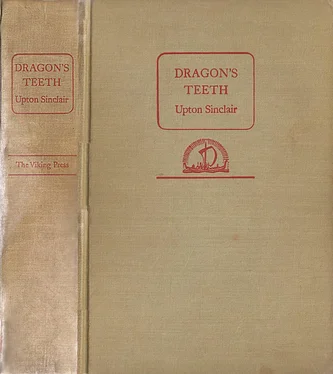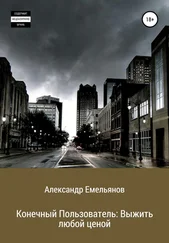Пользователь - o 3b3e7475144cf77c
Здесь есть возможность читать онлайн «Пользователь - o 3b3e7475144cf77c» весь текст электронной книги совершенно бесплатно (целиком полную версию без сокращений). В некоторых случаях можно слушать аудио, скачать через торрент в формате fb2 и присутствует краткое содержание. Жанр: Старинная литература, на русском языке. Описание произведения, (предисловие) а так же отзывы посетителей доступны на портале библиотеки ЛибКат.
- Название:o 3b3e7475144cf77c
- Автор:
- Жанр:
- Год:неизвестен
- ISBN:нет данных
- Рейтинг книги:4 / 5. Голосов: 1
-
Избранное:Добавить в избранное
- Отзывы:
-
Ваша оценка:
- 80
- 1
- 2
- 3
- 4
- 5
o 3b3e7475144cf77c: краткое содержание, описание и аннотация
Предлагаем к чтению аннотацию, описание, краткое содержание или предисловие (зависит от того, что написал сам автор книги «o 3b3e7475144cf77c»). Если вы не нашли необходимую информацию о книге — напишите в комментариях, мы постараемся отыскать её.
o 3b3e7475144cf77c — читать онлайн бесплатно полную книгу (весь текст) целиком
Ниже представлен текст книги, разбитый по страницам. Система сохранения места последней прочитанной страницы, позволяет с удобством читать онлайн бесплатно книгу «o 3b3e7475144cf77c», без необходимости каждый раз заново искать на чём Вы остановились. Поставьте закладку, и сможете в любой момент перейти на страницу, на которой закончили чтение.
Интервал:
Закладка:
VI
Lanny missed his inside news about Germany, because the government forbade the
publication of Vorwärts for three days, as a punishment for having published a campaign appeal
of the Social-Democratic Party. Communist meetings were forbidden throughout the whole
nation, and many Communist and Socialist papers were permanently suspended. "In ten years
there will be no Marxism in Germany," proclaimed the Führer. All over Prussia Goring was
replacing police chiefs with Nazis, and the Stormtroopers were now attending political
meetings in force, stopping those in which the government was criticized. Next, all meetings of
the Centrists, the Catholic party, were banned; the Catholic paper, Germania, of which
Papen was the principal stockholder, was suppressed, and then Rote Fahne, the Communist
paper of Berlin. These events were reported in L'Humanite under the biggest of headlines, and
Uncle Jesse denounced them furiously in the Chamber of Deputies; but that didn't appear to
have much effect upon Hitler.
What the Nazis were determined to do was to win those elections on the fifth of March. If
they could get a majority in the Reichstag, they would be masters of the country; the
Nationalists and aristocrats would be expelled from the cabinet and the revolution would be
complete. Papen, Hugenberg, and their backers knew it well, and were in a state of distress,
according to Johannes's reports. A curious state of affairs—the gentlemen of the Herren Klub
defending the Reds, because they knew that Hitler was using the Red bogy to frighten the
people into voting for him! Goebbels was demanding the head of the Berlin police chief
because he wouldn't produce evidence of treasonable actions on the part of the Communists.
"The history of Germany is becoming a melodrama," wrote the Jewish financier. "In times to
come people will refuse to believe it."
He was now beginning to be worried about the possibility of attacks upon his boys; those
gentle, idealistic boys who had been playing with fire without realizing how hot it could get.
Being now twenty-eight and twenty-six respectively, they ought to have had some sense.
Johannes didn't say it was Lanny's half-sister who led them into the worst extremes, but
Lanny knew the father thought this, and not without reason. Anyhow, he had got a trusted
bodyguard in the palace—a well-established and indubitable Aryan bodyguard. Freddi's school
had been closed; such a simple operation—a group of Stormtroopers appeared one evening
and ordered the people out. Nothing you could do, for they had arms and appeared eager to
use them. Everybody went, not even being allowed to get their hats and coats in February. The
building was closed, and all the papers had been carted away in a truck.
The Nazis wouldn't find any treason in those documents; only receipted bills, and examination
papers in Marxist theory. But maybe that was treason now! Or maybe the Nazis would prepare
other documents and put them into the files. Orders to the students to blow up Nazi
headquarters, or perhaps the Chancellery? Such forgeries had been prepared more than once,
and not alone in Germany. Hadn't an election been won in Britain on the basis of an alleged
"Zinoviev letter"?
The headquarters of the Communist Party of Germany was in Karl Liebknecht Haus, and
that was the place where treason was to be sought. The police had seized the documents, and
two days later Herr Goebbels's press service gave details about "catacombs" and "underground
vaults," a secret and illegal organization functioning in the basement of the building, and so
on. Johannes reported an embittered conflict in the Cabinet over these too obvious forgeries;
they were considered beneath the dignity of the German government—but perhaps the
German government wasn't going to be so dignified from now on! The Jewish financier
couldn't conceal his amusement over the discomfiture of the "gentleman jockey," the "silver
fox," and the rest of the Junker crew. They had made this bed of roses, and discovered too
late how full of thorns it was.
The thing that worried Lanny was the possibility that some Nazi agent might produce
letters proving that Hansi Robin had been carrying dynamite in his violin case, or Freddi in his
clarinet case. They must have had spies in the school, and known everything that both boys
had been doing and saying. Lanny said; "Johannes, why don't you and the whole family come
visit us for a while?"
"Maybe we'll all take a yachting trip," replied the man of money, with a chuckle. "When the
weather gets a little better."
"The weather is going to get worse," insisted the Paris end of the line.
VII
Lanny talked this problem over with his wife. She couldn't very well refuse hospitality to
Johannes, from whom she had accepted so much. But she didn't like the atmosphere which
the young Robins brought with them, and she thought them a bad influence for her husband.
She argued that the danger couldn't really be so great as Lanny feared. "If the Nazis are
anxious to get votes, they won't do anything to important persons, especially those known
abroad."
Lanny replied: "The party is full of criminals and degenerates, and they, are drunk with the
sense of power."
He couldn't stop worrying about it, and when the day for Hansi's coming drew near, he said
to Irma: "How would you like to motor to Cologne and bring them out with us?"
"What could we do, Lanny?"
"There's safety in numbers; and then, too, Americans have a certain amount of prestige in
Germany."
It wasn't a pleasant time for motoring, the end of February, but they had heat in their car,
and with fur coats they would be all right unless there happened to be a heavy storm. Irma
liked adventure; one of the reasons she and Lanny got along so well was that whenever one
suggested hopping into a car the other always said: "O.K." No important engagement stood in
the way of this trip, and they allowed themselves an extra day on chance of bad weather.
Old Boreas was kind, and they rolled down the valley of the Meuse, by which the Germans
had made their entry into France some eighteen and a half years ago. Lanny told his wife the
story of Sophie Timmons, Baroness de la Tourette, who had been caught in the rush of the
armies and had got away in a peasant's cart pulled by a spavined old horse.
They reached Cologne late that evening, and spent the next day looking at a grand cathedral,
and at paintings in a near-by Gothic museum. Hansi and Bess arrived on the afternoon train,
and thereafter they stayed in their hotel suite, doing nothing to attract attention to a member
of the accursed race. Among the music-lovers Hansi would be all right, for these were "good
Europeans," who for a couple of centuries had been building up a tradition of
internationalism. A large percentage of Europe's favorite musicians had been Jews, and there
would have been gaps in concert programs if their works had been omitted.
Was the audience trying to say this by the storms of applause with which they greeted the
performance of Mendelssohn's gracious concerto by a young Jewish virtuoso? Did Hansi have
such a message in his mind when he played Bruch's Kol Nidrei as one of his encores? When
the audience leaped to its feet and shouted, "Bravo!" were they really meaning to say: "We are
not Nazis! We shall never be Nazis!" Lanny chose to believe this, and was heartened; he was
sure that many of the adoring Rheinlanders had a purpose in waiting at the stage door and
Читать дальшеИнтервал:
Закладка:
Похожие книги на «o 3b3e7475144cf77c»
Представляем Вашему вниманию похожие книги на «o 3b3e7475144cf77c» списком для выбора. Мы отобрали схожую по названию и смыслу литературу в надежде предоставить читателям больше вариантов отыскать новые, интересные, ещё непрочитанные произведения.
Обсуждение, отзывы о книге «o 3b3e7475144cf77c» и просто собственные мнения читателей. Оставьте ваши комментарии, напишите, что Вы думаете о произведении, его смысле или главных героях. Укажите что конкретно понравилось, а что нет, и почему Вы так считаете.




